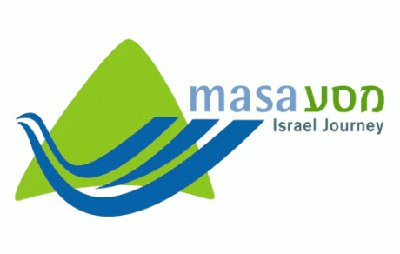As pandemic rages in U.S., programs in Israel see more applicants
Applications for service, study and internship programs in Israel have been rising during the past couple of months as people consider their options during the pandemic.
A recent article from the JTA news service, titled “As colleges go virtual, students instead are heading to Israel on gap year programs,”pointed out that“Israel was among the earliest countries to institute strict social distancing measures to curb the spread of the coronavirus.”
As this story is printed, Rhode Island, with a population one-ninth that of Israel, had 985 deaths from COVID-19. In all of Israel, the article said, the “death toll has remained below 300 [now 375], and the country has now reopened, with businesses and schools operating while following social distancing and other measures to curb disease spread. That makes studying there appealing to those coming from the United States.”
In addition to gap-year programs, recent college graduates are also looking to Masa programs to find volunteer opportunities, for internships, and for graduate school, which is often less expensive in Israel than in the U.S.
As of mid-May 2019, Masa had 2,500 registrants. At the same point in 2020, 5,500 had registered for Masa programs for the coming program year. Several months in Israel is often seen as a cost-effective way to gain life skills and discover oneself in a relatively safe place.
Masa Israel Journey is the largest immersive, long-term educational experience for young adults ages 18-30.
Though many Rhode Islanders who had planned to spend the summer in Israel have been disappointed, several local teens who had planned to spend their gap years in Israel have been reassured that their programs will take place. They may face a couple of weeks of quarantine once they reach Israel, but that’s a short time compared to the eight to 12 months they plan to spend there. Program orientations and intensive Ulpans(immersive classes in modern Hebrew) can take place during quarantine.
Some gap-year programs did send their students home once the pandemic hit, but many remained open, as did most of the internships, service programs and academic programs. Americans who work as temporary English teachers in Israeli schools have been writing those at home about how rewarding their experiences have been during the pandemic. Others continued to participate in internships with start-up companies and to work with various at-risk neighborhoods and ethnic groups.
Alana Deluty, of Providence, who served in Malaysia on a Fulbright program, plans to spend several months in Israel. She wrote, “My goals for this program are definitely twofold. I want to explore what it’s like to live in a Jewish place, and I think it will be challenging in a very different way than living in a big Indian city, rural Malaysia, or Ohio farmland was. My life has already had a rich diversity of experiences – yet I feel like there’s a big one missing; I’ve never not been a minority in a place that I lived.
“My second goal is to grow professionally from this program. After 3 years of working in research, I wonder if it is time to pursue my passion for helping others and for tikkun olam. The Yahel Social Change Fellowship will allow me to see what it’s like working in social-justice-oriented nonprofits, and spend every day helping people. I am hoping this will be a pivotal experience for me, and will help me orient myself towards a new, more social-justice-focused career.”
Young people through the age of 26 who live in the greater Rhode Island area are eligible to receive grants from the Jewish community towards their participation in these programs. Teens may also apply for needs-based scholarships. This year, two teens, Chava Saklad and Rachel Schochet, have been awarded special recognition, each receiving an extra grant provided by the Rabbi Joel Zaiman Fund.
Masa Israel Journey’s programs, which range from two months to a year, offer an authentic journey into Israeli society, culture, politics and history – and act as the largest pipeline for the Jewish Diaspora to access the finest Israeli businesses, social enterprises and academic institutions. Since its 2004 founding by the Israeli Prime Minister’s Office and The Jewish Agency, Masa has served over 160,000 young people from more than 62 countries.
For more information about Masa programs, go to www.masaisrael.org or email rachelm@masaisrael.org.
For information about local grants and scholarships for programs in Israel, please contact Larry Katz, director of Jewish Life and Learning at the Jewish Alliance of Greater Rhode Island, at lkatz@jewishallianceri.org.








